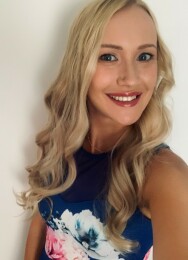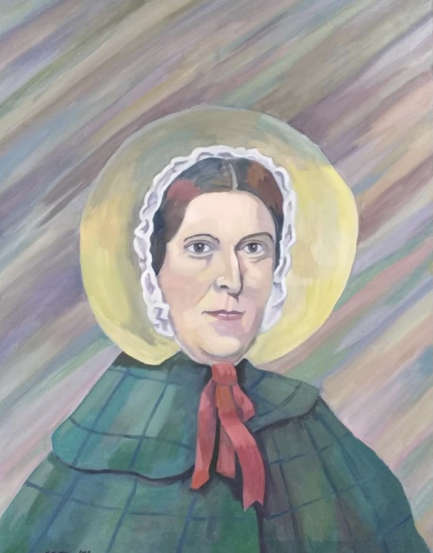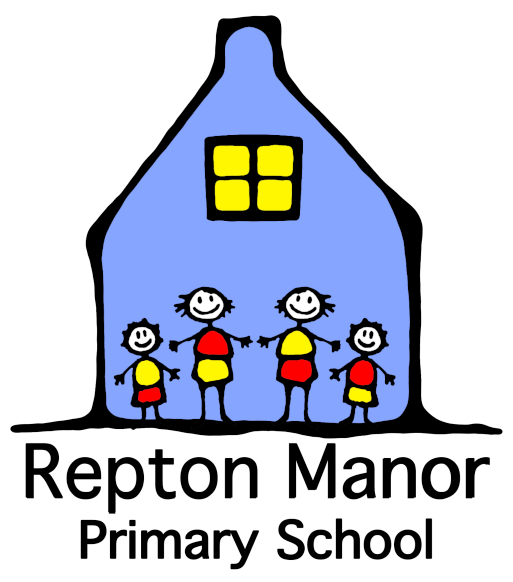Our Children
Early Years Foundation Stage
Important Information
Please see here for Important Information about starting school in Reception.
Guide to supporting early Reading at home.
Early Years
Welcome to our Early Years Phase at Repton Manor Primary School, the happiest and busiest place in the school! This phase of the school consists of the Reception year and is led by Miss Iles. As Phase Leader, Miss Iles oversees the teaching, learning and expectations of learning behaviours within the phase. Please take a moment to explore the year group page within our phase to discover all of the exciting learning opportunities that your child has been engaging in during their school day. Should you have any questions regarding your child’s experience at Repton Manor, please do not hesitate to contact your class teacher or Miss Iles.
Meet the Reception Team
|
|
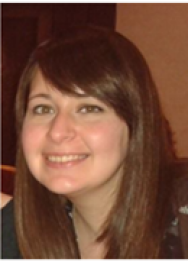 |
|
Jessica Iles Class Teacher and Phase Leader - Mary Anning Class |
Melody Boatfield Class Teacher - Jane Goodall Class |
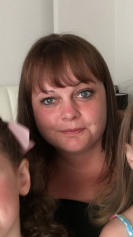 |
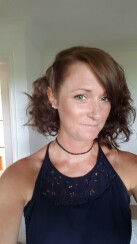 |
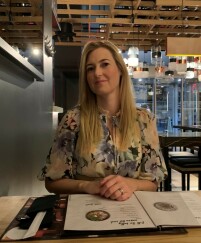 |
|
Nicole Lewis Teaching Assistant |
Gemma Hammond Teaching Assistant |
Kimberley Lancaster Teaching Assistant |
Vision
Upon starting the Early Years at Repton Manor children will be invited into an enriched environment which enables them to make independent choices, develop interests, build resilience and ignite curiosity. Within this carefully thought about environment adults have a deep understanding of how children learn and develop in the Early Years specifically. Adults spend time becoming engrossed in shared thinking and discussion, they know how to move learning on in a purposeful way. We ensure every child’s voice is heard and individual needs are met through rigorous plan, do, review cycles for individuals and groups. All areas of the EYFS curriculum are valued and significant importance is placed in developing the Prime areas. It is important to us that children are given real life experiences which they are able to draw upon using their skills and knowledge to build links between different areas of learning. You will find our children outside come rain or shine, experiencing the weather and the changing seasons. We see our Early Years children as endlessly capable individuals.
The EYFS is based on four overarching principles:
-
Every child is a unique child, who is constantly learning and can be resilient, capable, and confident.
-
Children learn to be strong and independent through positive relationships.
-
Children learn and develop well in enabling environments, in which their experiences respond to their individual needs and there is a strong partnership between practitioners and parents and/or carers.
-
Children develop and learn in different ways and at different rates.
Aims and Principles
-
Foundation Stage teachers and teaching assistants should ensure that all children feel part of the school community, secure and valued. Initially this will be exclusively the Early Years setting and as the year develops will move into the wider school.
-
To provide a relevant curriculum with tasks that take into account the children’s interests and fascinations and are both practical and purposeful. The children will be taught through stimulating topics, these are developed with the children in mind and develop specific interests they have expressed. The teachers will also plan many activities and tasks which are centered around skills the children need to develop, these are targeted through observation and work alongside the child.
-
To provide quality opportunities for children to engage in activities planned by adults and those that children plan or self-initiate. Teachers must plan a challenging and enjoyable experience in all areas of learning and development.
-
Practitioners acknowledge the holistic nature of young children’s learning and natural links will be made between different areas of the curriculum, with the emphasis on learning through play and the importance of developing the prime areas of the Foundation Stage Curriculum.
-
Practitioners always endeavor to create a learning environment that develops children’s independence and encourages children to explore and express their ideas and feelings.
Planning and organising the curriculum
There are seven areas of learning and development that must provide a framework for planning, teaching and assessing in early years settings. All areas of learning and development are interconnected.
The three prime areas are:
-
Communication and Language
Children will be given a range of opportunities to experience a rich language environment, to develop their ability to express themselves and to speak and listen in a range of situations. There has been a huge emphasis placed on this area of development, this is due to a decline in children’s language skills and the rise in children with language disorders. We will talk to parents often about their child’s speech and language development as we believe the ability to communicate opens such an exciting door to learning opportunities.
-
Physical Development
Children will be provided with lots of opportunities to be active; to develop their coordination, motor control and movement. Children will be able to explore the environment at Repton Manor, including the adventure trail, nature area and the large equipment in the school hall. We place a huge importance on children’s physical development as we are acutely aware of the developmental steps children need to move through before becoming writers. Children will be taught the importance of physical activity and to make healthy choices in relation to lifestyle.
-
Personal, Social and Emotional Development
This is a vital area of development for children to develop a positive sense of themselves and others, forming positive relationships and developing social skills and learning how to manage their feelings. They will begin to understand appropriate behaviour in a range of different social situations and have confidence in their own abilities which enables them to make independent choices. This area of development is supported in all that we do at Repton Manor. Adults will always model positive relationships and behaviour, fostering a feeling of care and safety.
There are four specific areas, through which the three prime areas are strengthened and applied:
-
Literacy
Children will be taught to link sounds and letters and to begin to read and write. Children will be taught Phonics from the Read Write Inc scheme, this will enable them to make good progress with both their reading and writing skills. Children will be given access to a wide range of reading materials to ignite their interest and love of Literacy skills. We are a storytelling school so we place a huge emphasis on children being taught well known stories, orally rehearsing and innovating to create their own stories.
-
Mathematics
Children will be provided with opportunities to develop and improve their skills in counting, understanding and using numbers. They will deeply embed their understanding of numbers to 10, learning how to solve addition and subtraction problems. It is important to us that children understand the place of mathematics within everyday life and apply their mathematical skills to solve problems and tackle challenges.
-
Understanding the World
Children will make sense of their physical world and their community through opportunities to explore, observe and find out about people, places now and in the past! Children will be able to take advantage of our richly diverse school community and will be able to explore what makes people unique and also what brings us together.
-
Expressive Arts and Design
Children will explore and play with a range of media and materials, as well as providing opportunities and encouragement for sharing their ideas and feelings through a variety of activities in art, music, movement, dance, role-play, and DT.
Classroom Organisation and Resources
The organisation of the Foundation Stage classrooms reflects the importance that is placed on children learning through play and first-hand experience, developing independence and having opportunities to initiate their own learning. We are lucky to have a setting which is open plan between two large spaces which is used as one classroom a majority of the time. Within this space you will find
-
Malleable area
-
Role play area
-
Construction area
-
Small World area
-
Sand and water
-
Story Centre with a range of fiction and non-fiction books, puppets and storytelling resources
-
Mark making area with a range of writing resources
-
Creative area including junk modelling, painting, college and other creative media.
-
Computers and programmable toys
-
Interactive whiteboards
-
Musical instruments
-
Maths games and equipment
-
Outside classroom – large scale construction materials, gross motor area, mathematical games and ball games, mud kitchen, water area, large climb in sand pit, bike area, outdoor role play, large surfaces to draw, paint and write. As well as gardening areas subject to the season.
-
The Reception class also has a set of waterproof clothing in order to make full use of the outside classroom, school field and the on-site nature area.
The environment plays an important role in the development of children's skills and knowledge, therefore the environment is carefully planned to include all of the essential ingredients needed to build life-long, engaged and critical thinkers. You will find the environment is not overly cluttered and all resources have specific places where they belong, these are indicated by photos and labels. This is to aid children's independence, ability to become deeply engaged and to self-select.
You will find areas which are comfortable and inviting for children, this is to promote a high level of communication skills between children. All areas within our Early Years setting have books and writing equipment placed within them, this is because we feel that children need to develop a love of literacy skills early on and see those skills as part of everything they do within school.
You will find a snack area which is run and maintained by the children, they are able to help themselves to fruit and milk throughout the day when they are hungry or thirsty. The children are then responsible for washing up plates and cups and returning them to the allocated spaces.
Every area of learning is enhanced each week to promote a new skill, the topic learning we are taking part in or a particular interest of children have displayed recently. Children are able to engage in these activities independently or while supported by an adult.
At Repton Manor primary school we believe that children can spend time in the outside classroom whatever the weather, there is no such thing as unsuitable weather only unsuitable clothing. Children are encouraged to go outside each day and spend time exploring the environment and develop many of the larger scale skills and knowledge.
Transition
We have close links with lots of the Nurseries in the local area as well as Repton Manor Nursery which is situated on our school grounds. Although this setting is a PVI we work closely together and the school's Early Years Leader visits once a fortnight and sits on the board of Directors. This allows for a much smoother transition for a large proportion of children.
In June, a meeting is held by the Headteacher and Foundation Stage teachers to introduce parents/carers to the school, procedures and curriculum. Parents/carers are given a transition handbook which outlines the curriculum and school routines, along with a document pack to be completed and returned to school.
The children will be invited for stay and play sessions where the parent or carer are welcome to explore the school environment with their child.
During August the children are invited for a party on the school grounds, this is a wonderful opportunity for children to meet new friends and start to build relationships with other children. There will be music, dancing and a range of outdoor and creative activities.
During the summer term, all parents/carers are home visited by two members of the Early Years team, this gives the new child and their family an opportunity to meet with their new teacher on a one to one basis.
The children will then have two weeks of half days in school followed by children starting full time; this ensures children have time to settle into school life gradually. Early Years children are introduced to the wider school gently through the year, this develops as they are ready for bigger experiences.
Involving Parents
Parents/carers are the child’s first and most enduring educators. When parents/carers and teachers work together, the results have a positive impact on the child’s development. A successful partnership needs to be a two-way flow of information, knowledge and expertise. We aim to develop this by:
-
Outlining how the EYFS is being delivered to Parents/carers during the new parents meeting in June, to enable them to understand the value of supporting their child’s learning at home and how they can access more information.
-
Operating an “open door” policy, whereby parents/carers can come and discuss concerns and developments in an informal manner, and also to view children’s learning.
-
Sharing progress through annotated photographs and observations in ‘Learning Journeys’ which are always available for parents to look at.
-
In the Autumn term, there will be an evening meeting for parents to further explain the curriculum, with a particular focus on phonics, reading and early maths skills, to share ideas of how parents can be involved.
-
Bedtime story events will be held during terms 2 and 4, these are wonderful opportunities for children and families to develop a shared love of reading.
-
Challenge afternoons will be held during terms 3 and 5, these are opportunities for parents to engage in shared learning opportunities with their child. This provides a useful insight into what children are learning and how they develop concepts at school.
-
A transition picnic will be held during term 6 which will involve the current early years children and the new entrants children for the September. The year one teachers will be invited as well to provide opportunities for children to start to develop relationships in an informal manner. This also gives new parents opportunities to discuss the starting school process with parents who are already established at Repton Manor primary school.
-
Discussing individual next steps and progress with parents/carers at parents’ evening.
-
Any concerns over special educational needs or disabilities will be discussed with parents and the Special Needs Co-ordinator (SENCO) for the school.
-
The first books that children bring home to share with parents/carers will be picture books and then books with decodable sentences.
Routine
8.30-8.45am - Children will arrive with their parents to the Early Years garden gate where they are encouraged to say their goodbyes with parents, then independently walk into the classroom where teaching assistants will be waiting to greet them. A class teacher will always be at the gate in the morning so parents can share any information and children are greeted by a familiar face.
Children will then self-register using a photo of themselves and choose a lunch using photos of the food to aid their selection. Children will then choose a self-directed task whilst greeting their friends.
8.45-9.00 - Children will come together for a welcome and register
9.00 - 9.40 - Teacher Directed Activities - Phonics (RWI) Motor skills
9.40-10.40- Child Initiated time
10.40-11.30 - Motor Skills, Mathematics
11.30-12.30 - Children will be supported by familiar adults to collect and eat their meal and play a range of activities outside
12.30-1.10- Teacher Directed Activities - Understanding the World, Expressive Arts and Design, Communication and Language and Personal Social and Emotional Development
1.10- 2.30 - Child Initiated time
2.30-3.10 - Storytelling session
3:15pm - Children will be brought to the Early Years garden and be called by name when parents are seen by the teacher. Children will not be released to unfamiliar adults who are not a named contact.
EYFS Curriculum
Please see your child's Curriculum Map to see the learning that they will be taking part in this year.
Reception Curriculum Map
Learning expectations of your child:
Framework
Your child's learning has been mapped on a Year R Framework document. The document shows the key objectives that will be covered and which your child should have mastered to be Age Appropriate in each subject by the end of the academic year.
End Points
The Key objectives for each subject area which we would be supporting all children to have mastered are mapped out on a Year R End Points document. These are the key objectives that we feel a child needs to have mastered to move onto the next years curriculum for each subject.
Assessing our Curriculum:
The following guide gives some information on the assessments which will be reported home in Year R.
Our class names this year are...
Each of our classes is named after a world famous STEM hero. We are learning about this hero throughout the year. We had the portraits below commissioned (see artist website here) and you will find these, along with our learning about our hero, in our Rainbow Room. Please ask us about our hero and why they are so special.
Jane Goodall
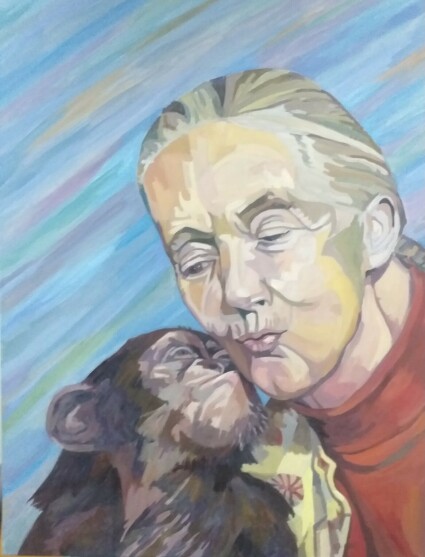
"When Jane was little, her father gave her a toy chimpanzee named Jubilee. This inspired her lifelong love of animals, and she went to study them in the wild as soon as she could. Jane lived with chimpanzees in their natural habitat and became famous for her pioneering approach to research. She now educates the public on animal rights."
Little People, Big Dreams by Maria Isabel Sánchez Vegara
Mary Anning
"When Mary was little, her family was very poor. She used to help her dad to comb for shells and bones up high on dangerous cliffs. After receiving a book as a gift from a kind benefactor, Mary learned all about fossils. She continued to hunt for them and made the startling discovery of a complete skeleton of an ichthyosaur. Sadly, she wasn't allowed to study along with all the other men, but she carried on making her own discoveries – including dinosaur poo! – and advising the Geological Society when they needed help. It took a lifetime to receive recognition but we all remember her now as the mother of paleontology."
Little People, Big Dreams by Maria Isabel Sánchez Vegara

